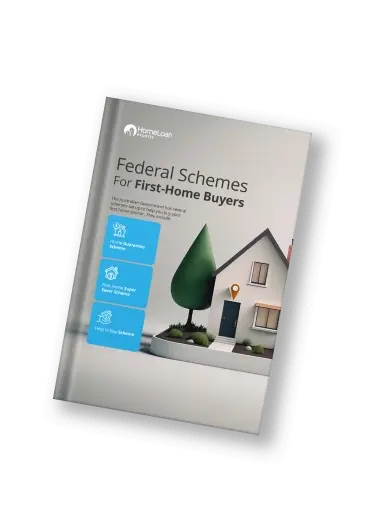Key Points
How much can I borrow? - Borrow up to 105% of the property value with a guarantor loan.
- Borrow up to 95% of the property value without a guarantor.
- Borrow up to 90%-100% with no LMI if you're a preferred industry professional such as doctors, lawyers, accountants and sports professionals.
- Borrow up to 105% of the property value with a guarantor loan.
- Borrow up to 95% of the property value without a guarantor.
- Borrow up to 90%-100% with no LMI if you're a preferred industry professional such as doctors, lawyers, accountants and sports professionals.
Will I get approved? - You need savings of at least 5%-10% of the purchase price.
- You don't need a deposit if you have a guarantor.
- You can use a gift from your parents as a deposit.
- The first home owners grant (FHOG) can be part of your deposit.
- You need savings of at least 5%-10% of the purchase price.
- You don't need a deposit if you have a guarantor.
- You can use a gift from your parents as a deposit.
- The first home owners grant (FHOG) can be part of your deposit.
What interest rates are available? Competitive rates are available. Contact us to learn more.
Competitive rates are available. Contact us to learn more.
Lenders available: Select bank and non-bank lenders are available. Contact us now to find out more.
Select bank and non-bank lenders are available. Contact us now to find out more.
No deposit loans for first home buyers are available
How can my parents help me?
- Borrow up to 105% of the property value with a guarantor loan.
- Your parents can use the equity in their home to secure your mortgage so you can buy a home with no deposit.
- Avoid the high cost of Lenders Mortgage Insurance (LMI).
- Cover the extra costs of purchasing a property including stamp duty, mortgage set up costs and conveyancing and legal fees.
- Qualify for a low interest rate.
Did you know that around 60% of first home buyers receive some sort of help from their parents?
If they’re not in a position to provide a guarantee, your mum and dad can gift you the money for the deposit instead.
Our mortgage brokers are specialists in low deposit home loans for first home buyers.
Please call us on 1300 889 743 or fill in our free assessment form to find out how we can help.
Will I pay a higher interest rate by using a guarantor?
Actually, you’ll probably get a rate discount!
This is because the additional security offered by your parents actually lowers your risk moreso than someone borrowing 95% of the property value.
If your income, job and credit history are all stable then you’re a highly sought-after borrower.
Banks are increasingly recognising the value of first home buyers.
You may qualify for discounted interest rates. and waivers on loan approval, application and valuation fees.
Head to our interest rates page for the current special offers from our lenders.
Why are no deposit home loans such a popular choice?
A no deposit loan will allow you to borrow up to 100% of the purchase price.
The main type of no deposit loan is known as a guarantor loan with gifted deposit home loans coming a close second.
They are still available with all the normal loan benefits such as 100% offset, fixed interest rates and interest only periods.
Many people are eligible for discounted professional package interest rates, basic loan packages and application fee waivers as well!
Can you use the First Home Owners Grant as a deposit?
Yes you can use the First Home Owners Grant (FHOG) as a deposit.
However, it isn’t normally enough on its own.
- Try our FHOG calculator to discover which grants you are eligible for.
- If you’re building a home then your grant isn’t available until construction commences.
- In total, you’ll typically need 5% to 10% of the purchase price, including the FHOG.
- If you have a guarantor then you don’t need any savings whatsoever.
How much is the First Home Owners Grant?
The First Home Owners Grant (FHOG) is a national scheme funded by the states and territories of Australia and administered under their own legislation.
A one-off grant of between $5,000 all the way up to $20,000 is available depending on your state and the property price.
Note that some states have additional or separate grants, so we’ve created a First Home Owners Grant Calculator to let you know what’s available in your state.
You can apply for the FHOG through your bank when you apply for your loan. The funds will be advanced with your loan at settlement. If you’re building a home then you receive the grant when you apply for your first construction drawdown.
Do first home buyers get any other benefits?
Yes, there’s the federal governments’ new initiative called the First Home Loan Deposit Scheme which began from 1 January 2020.
The Scheme allows low and middle income first home buyers purchase a property with a deposit as low as 5% deposit while avoiding paying tens of thousands of dollars in LMI fees.
The best part is you can use the FHOG together with the deposit Scheme.
In addition, the state governments also offer a range of stamp duty exemptions, additional grants and other benefits that can help you buy your first home.
We recommend that you refer to your state government first home buyer website for the full details:
- ACT First Home Buyers
- NSW First Home Buyers
- NT First Home Buyers
- QLD First Home Buyers
- SA First Home Buyers
- TAS First Home Buyers
- VIC First Home Buyers
- WA First Home Buyers
If you’re not sure what benefits you may receive, we recommend that you call your state’s first home buyer hotline.
*The FHOG in ACT has been replaced by the new Home Buyer Concession Scheme, which will provide a full duty concession for eligible home buyers effective 1 July 2019.
3 Federal Schemes For First-Home Buyers
Get Information On Available First-Home Buyer Schemes Fill out the form to access an exclusive PDF.

Can I use super as a deposit?
In the 2017 Federal Budget, the Australian Government announced that it would allow first home buyers to salary sacrifice into their superannuation account in order to save for a deposit.
Strictly speaking, any concessional (pre-tax) and non-concessional (after-tax) contributions made to your super from 1 July 2017 can later be withdrawn to fund your deposit.
To be clear, you cannot drawdown from your current super balance to fund your deposit to purchase a property.
There are some other limitations to the Government’s policy, including capping the amount you can contribute to just $15,000 a year and $30,000 in total.
We don’t believe this initiative goes far enough but you can read more about it on the ‘Using Super To Buy A House’ page.
What costs are associated with buying a home?
There are several costs you may incur when buying your first home. You should discuss these costs with your mortgage broker or conveyancer before signing the contract to buy a property.
- Mortgage stamp duty: This is a hidden state government fee that’s calculated based on the amount that you borrow. Most states either waive this for first home buyers or are phasing this fee out.
- Purchase stamp duty: This is one of the most expensive costs associated with buying a home but some states offer stamp duty concessions for first home buyers (try the stamp duty calculator).
- Registration fees: Another government fee! This is a small fee of around $200 for registering the change of name on the property title and registering the new mortgage on the title.
- Conveyancing / legal fees: You can expect to pay between $700 and $1,500 for your conveyancing costs for a standard first home purchase. Please refer to our list of recommended conveyancers if you’ve not yet chosen one.
- Lender fees: Some lenders charge setup fees of up to $850 whilst others will waive all the setup fees for your loan. We can provide you with a free quote for your no deposit loan with the relevant suitable interest rate and fees.
- LMI: This is the other major cost of buying your first home with no deposit. LMI can range from $0 for a quick start loan up to 5.1% of the loan amount. Call us on 1300 889 743 or fill in our free assessment form for an LMI quote or use our LMI premium calculator to find an exact premium for your situation.
Why is it important to get a pre-approval?
In a competitive real estate market, it’s not uncommon to see first home buyers trying their luck at auctions.
Let’s say you won at auction and put your 5% deposit down.
You then apply for a home loan and your application is knocked back for any number of reasons such as your employment status or the nature of the location or property.
If you try to get your deposit back, it’s game over unfortunately.
That’s because in most states, there is no cooling off period when buying at auction.
For a $500,000 property, you could potentially lose $25,000.
Before shopping around for properties, it’s important to get a pre-approval first.
Although they aren’t 100% full-proof, they can give you some piece of mind when making an offer on a property.
Generally speaking, if you buy a property soon after you get a pre-approval, your situation remains relatively unchanged and you buy an acceptable property in a low-risk postcode, your pre-approval will generally go to full approval.
What should I look for in a property?
- Studio apartments: If your unit is less than 50m², excluding balconies and car spaces, then some lenders may not accept it as security for a loan.
- Land size over 2 ha: If the land is greater than 2 hectares, some lenders may not accept it as security for a home loan.
- Standard title and zoning: If the property you’re buying is not zoned for residential use or is not Torrens, freehold or strata title (or leasehold in the ACT only) then please check with us before proceeding.
- No rental guarantees/vendor incentives: If the seller is offering a rental guarantee, a rebate at settlement or has included furniture in the purchase price, in many cases the bank valuer may value the property for less than the purchase price.
- In a good condition: Banks may not accept the property if it’s not in good condition. As a general rule of thumb, if the property could not be rented out as it is now, then it’s not in good enough condition.
- Nothing unusual: If there is anything unusual about the property you’re buying then please check with us before proceeding.
Check out our property types section to get an idea of what banks consider as high-risk property types.
Also, use the postcode calculator to work out how the property’s location stacks up in terms of risk.
What are the steps in buying a home?
Contact us on 1300 889 743 or complete our free assessment form and our expert mortgage brokers will let you know if you’re eligible to borrow 100% or work out if you need to save a deposit and what interest rate discounts you may be eligible for.
We work with all the major bank and non-bank lenders and charge no fees for our services for most standard residential loans.
